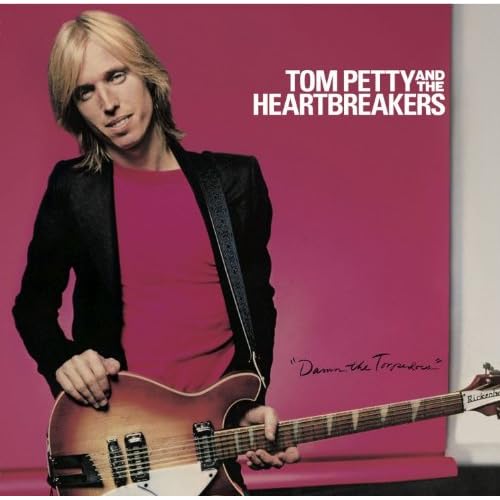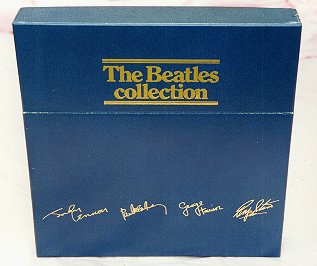
In November of 1968, Neil Young was still on the heels of the breakup of Buffalo Springfield and had yet to release his solo debut. For two nights at the Canterbury House in Ann Arbor, Michigan, he would treat a small crowd to a preview of his new record as well as select cuts from his efforts with Buffalo Springfield.
Two years later, the song Sugar Mountain, recorded at the Canterbury House, would appear as the B-side to The Loner, the single from his self-titled debut. The remainder of the shows would remain in the vaults for some forty years until its official release several months ago on cd/dvd as part of the Archives Performance Series. This week, it was released for the first time on imported 200 gram vinyl.
Unlike the previous installation of the Performance Series, the venerable Live at Massey Hall, which even according to Young, "should have been released between After the Goldrush and Harvest," Sugar Mountain has more of the feel of a historical document. Young was reportedly very, very nervous prior to the show, and felt that he didn't have enough material that the crowd would be interested in hearing.

Young, with his guitar in hand, takes the stage at Canterbury House alone. While Massey Hall was a complex performance both vocally and musically, Canterbury House reveals a nascent performer engaging in goofy banter with the audience, who delivers a simpler, rawer vocal performance. His guitar work is also spartan, as he rarely engages in the fingerpicking and other flourishes heard on Massey.
This vinyl package promised to be super-premium and has delivered in every way. The dual 200 gram discs, pressed in Japan at Toyokasei, arrived perfectly flat, clean, and were both extremely quiet during play. Not a single mark or fingerprint could be found on either disc, which are housed in anti-static poly sleeves inside of a Stoughton gatefold cover made of extra-heavy cardstock.

Neil Young in 1968
In preparation for this review, I became well acquainted with this recording by repeatedly listening to the cd version. While the cd sounds very good, the vinyl beats it in direct comparisons. Like the material itself, the recording was a very simple two-track affair, and both the cd and vinyl contain a significant amount of hiss that thankfully wasn't futzed with by either the digital engineer, or by Chris Bellman, who mastered the vinyl release.
Once you get used to the hiss, which easily happens once you turn up the volume, it's just Neil and his guitar with you in your living room. While this recording doesn't have quite the presence of Massey Hall, the simplicity of the performance and the recording should deliver genuine satisfaction to the audiophile purist.
Both the cd and vinyl deliver a realistic experience that is likely very close to what is on the original two-track tape. The vinyl brings you that much closer to the tape by delivering a sound that is fuller in the lower-mids, resulting in more punch to the acoustic guitar and a fuller, smoother-sounding vocal, devoid of just a bit of grain that can be heard on the edge of the vocals when listening to the cd. In all honesty, I'm not certain how much of this difference is attributable to the mastering, and how much is due to the EAR 834p tube phonostage I'm using in my vinyl system.

This brings the question of whether it is worth buying this sixty-plus dollar vinyl package? The answer will likely depend upon your system. If you are invested in your vinyl system such that most recordings tend to sound better on vinyl than on cd, this release will be no different--this vinyl will sound fantastic. I cannot imagine anything that could have been done to make this release any better. If, on the other hand, cds generally sound as good or better than a given vinyl release, then you're probably better off sticking with the cd, which does sound very good as well.
One more question that has everyone wondering: Will Reprise release this on domestic vinyl--and at a more reasonable price? This is Neil Young we're talking about. There is currently some confusion surrounding the distribution of Neil Young's vinyl releases. With the release of Massey Hall on vinyl, Reprise replaced Classic Records as distributor, and many saw this as an encouraging sign as the Reprise-distributed copies were of very high quality and were $10-15 less expensive than their Classic counterparts.
A source close to Neil Young confirmed this change of distributors, and after the Sugar Mountain vinyl was announced as a Japanese import, he indicated that he expected it to eventually be released domestically as well. He also stated that Neil could be very particular about vinyl quality and things could change if he wasn't satisfied.
The bottom line seems to be that there is a chance that this will be re-pressed domestically and sell for considerably less. There is also a chance that it won't--and being limited to 3500 copies, it won't last long. How badly do you want it?
Highly Recommended










0 comments:
Post a Comment